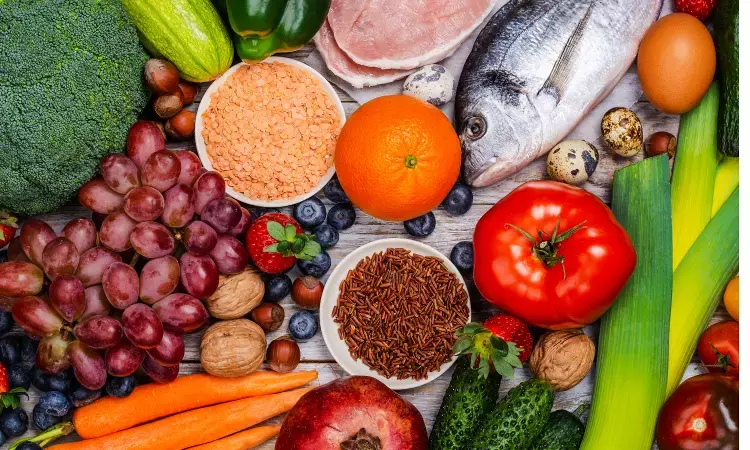- Home
- Medical news & Guidelines
- Anesthesiology
- Cardiology and CTVS
- Critical Care
- Dentistry
- Dermatology
- Diabetes and Endocrinology
- ENT
- Gastroenterology
- Medicine
- Nephrology
- Neurology
- Obstretics-Gynaecology
- Oncology
- Ophthalmology
- Orthopaedics
- Pediatrics-Neonatology
- Psychiatry
- Pulmonology
- Radiology
- Surgery
- Urology
- Laboratory Medicine
- Diet
- Nursing
- Paramedical
- Physiotherapy
- Health news
- Fact Check
- Bone Health Fact Check
- Brain Health Fact Check
- Cancer Related Fact Check
- Child Care Fact Check
- Dental and oral health fact check
- Diabetes and metabolic health fact check
- Diet and Nutrition Fact Check
- Eye and ENT Care Fact Check
- Fitness fact check
- Gut health fact check
- Heart health fact check
- Kidney health fact check
- Medical education fact check
- Men's health fact check
- Respiratory fact check
- Skin and hair care fact check
- Vaccine and Immunization fact check
- Women's health fact check
- AYUSH
- State News
- Andaman and Nicobar Islands
- Andhra Pradesh
- Arunachal Pradesh
- Assam
- Bihar
- Chandigarh
- Chattisgarh
- Dadra and Nagar Haveli
- Daman and Diu
- Delhi
- Goa
- Gujarat
- Haryana
- Himachal Pradesh
- Jammu & Kashmir
- Jharkhand
- Karnataka
- Kerala
- Ladakh
- Lakshadweep
- Madhya Pradesh
- Maharashtra
- Manipur
- Meghalaya
- Mizoram
- Nagaland
- Odisha
- Puducherry
- Punjab
- Rajasthan
- Sikkim
- Tamil Nadu
- Telangana
- Tripura
- Uttar Pradesh
- Uttrakhand
- West Bengal
- Medical Education
- Industry
Nutrients including protein, zinc and niacin associated with improvement in heart health

Improvements in metabolic and cardiovascular health seen during weight loss in people with obesity are traditionally attributed to either the weight loss itself or the accompanying changes in glucose, blood pressure or blood fats.
Nutrients including protein, zinc and niacin associated with improvement in heart health, finds a new study.
The study was presented at the European Congress on Obesity (ECO) in Maastricht, the Netherlands.
The possibility that the make-up of the diet itself is also involved has not been studied extensively, other than for protein, carbohydrates and fats. The researchers, from the Sagol Center for the Metabolic Syndrome, Institute of Endocrinology, Metabolism and Hypertension, Tel Aviv-Sourasky Medical Center and the Sackler Faculty of Medicine, Tel Aviv, Israel, were interested in whether other nutrients might also be important.
A total of 72 participants with metabolic syndrome and obesity (55.5% male, average age 53 years) were enrolled in a one-year intensive multidisciplinary weight loss programme. This included personalised diet and exercise plans and regular meetings with a physician and dietician. The participants, who had a BMI of 34.28 kg/m2 at baseline, were asked to fill in a detailed dietary questionnaire a week before starting their diet and exercise plans and a year later.
Arterial wall stiffening is linked to a heightened risk of cardiovascular morbidity and mortality and so blood vessel flexibility was used as a proxy for cardiovascular health.
Three different meaures of blood vessel flexiblity were taken: pulse wave velocity (PWV), common carotid artery intima media thickness (IMT) and flow mediated dilation (FMD).
One year on, BMI had fallen by 9.4% and all three measures of blood vessel flexibility had improved. FMD had improved by 47% on average, PWV had improved by 13% and IMT had improved by 1%.
The improvements in PWV were associated with reductions in calorie and saturated fat intake and with increases in zinc intake. Zinc plays a key role in the synthesis of nitric oxide in the blood vessels. Nitric oxide helps relax the inner muscles of the blood vessels, leading them to widen. The improvements in IMT were linked to reductions in calorie and saturated fat intake and increases in protein.
The improvements in FMD were linked to increases in niacin (vitamin B3) intake. Niacin is known to dilate blood vessels, mainly in the upper part of the body. Lead researcher Dr Brurya Tal, of Tel Aviv-Sourasky Medical Center, says: "We found changes in the consumption of specific food components to be linked to better vascular structure and function.
"A Mediterranean diet, rich in protein (lean dairy products, fish, poultry, and eggs), rich in vegetables, nuts, seeds and with moderate consumption of fruits and grains, can contribute to improving vascular flexibility, thus indirectly protecting the cardiovascular system.
"The zinc-rich foods in the diet plan were sunflower seeds, pumpkin seeds, nuts and meat. Meat and fish provided niacin."
Reference: A diet rich in protein, zinc and niacin and low in saturated fat makes blood vessels more flexible, research suggests (2022, May 4) retrieved 4 May 2022 from https://medicalxpress.com/news/2022-05-diet-rich-protein-zinc-niacin.html
Dr Kamal Kant Kohli-MBBS, DTCD- a chest specialist with more than 30 years of practice and a flair for writing clinical articles, Dr Kamal Kant Kohli joined Medical Dialogues as a Chief Editor of Medical News. Besides writing articles, as an editor, he proofreads and verifies all the medical content published on Medical Dialogues including those coming from journals, studies,medical conferences,guidelines etc. Email: drkohli@medicaldialogues.in. Contact no. 011-43720751


